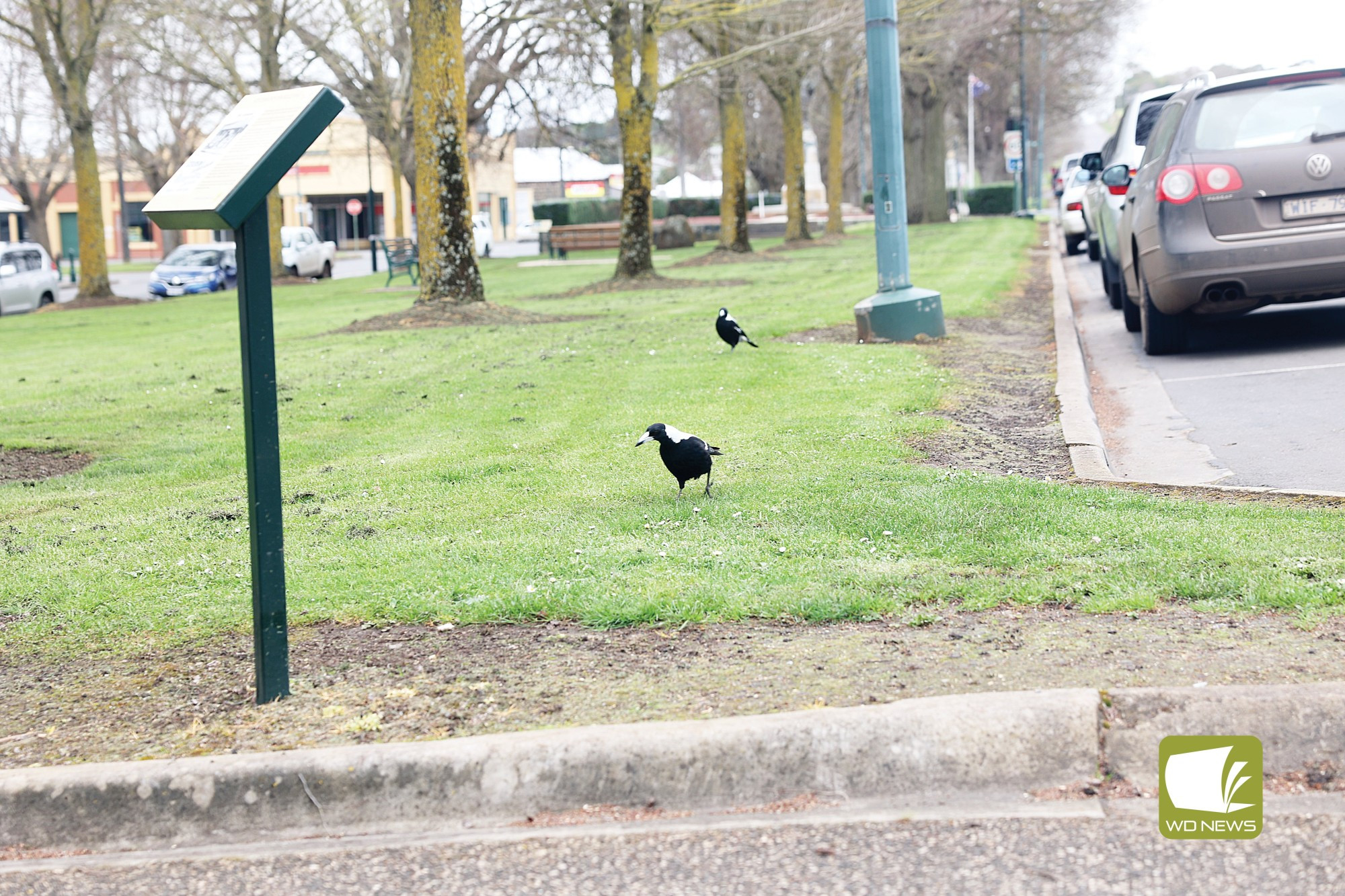General News
14 September, 2023
Swooping season starts again
SPRING has sprung, and Victorians are being reminded that some native birds such as magpies and plovers may swoop during their breeding season.

SPRING has sprung, and Victorians are being reminded that some native birds such as magpies and plovers may swoop during their breeding season.
While there are no known hotspots for swooping in the district, it is still important to be careful.
Department of Energy, Environment and Climate Action (DEECA) Senior Wildlife Projects officer Abby Smith said every spring, some native birds swoop to defend their eggs and young for a short time while their young are most vulnerable.
“While swooping is unsettling, it’s normal behaviour for a range of native birds,” she said.
“Swooping is a warning to people and animals not to come near their young. It’s rare for birds to make contact.”
Native birds swoop in urban and rural areas, parks and gardens, along bike tracks or anywhere that birds are nesting.
“Not all birds swoop during the breeding season, so don't be concerned simply because there are magpies or other common swooping birds in the area,” Ms Smith said.
"Remember, the swooping behaviour will only last for a few weeks, normally stopping soon after the young leave the nest.”
If residents are worried about swooping, steps that can be taking to reduce the risk include:
• knowing local swooping hotspots and avoiding the area;
• moving quickly not running;
• wearing protective head and eye coverings;
• avoiding harassing birds – this can make swooping worse; and
• not feeding the birds and not destroying their nests.
Swooping incidents, as well as nation-wide swooping hotspots, can be found on the interactive map at www.wildlife.vic.gov.au/managing-wildlife/swooping-birds
All Victorian native wildlife is protected by law, and it is illegal to harass or harm native birds and other wildlife without authorisation.
You can report wildlife crime such as harassing, harming or disturbing wildlife to Crime Stoppers Victoria on 1800 333 000.